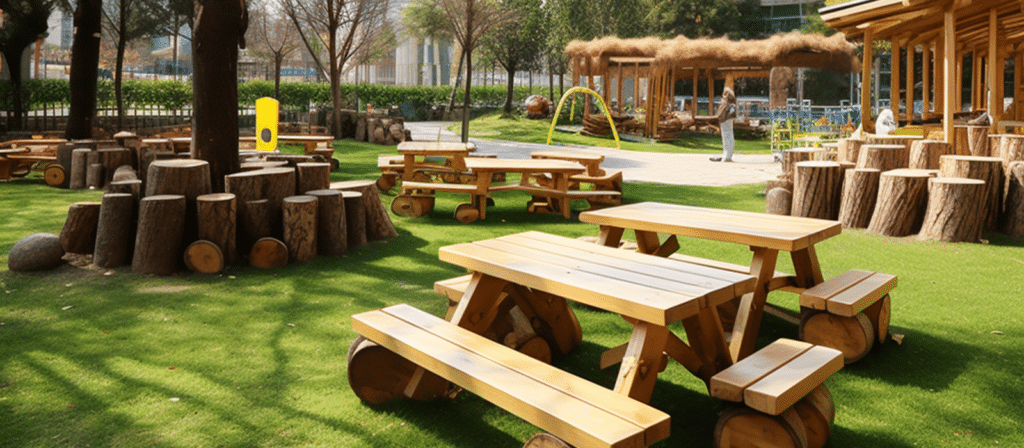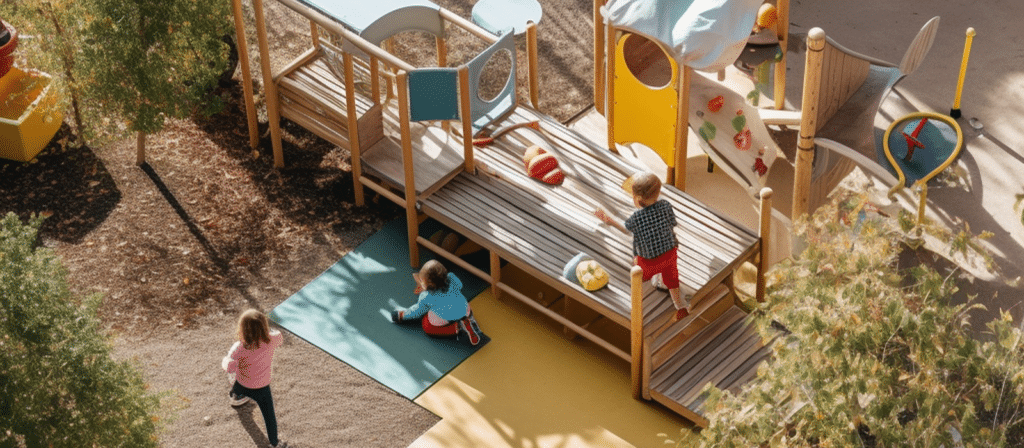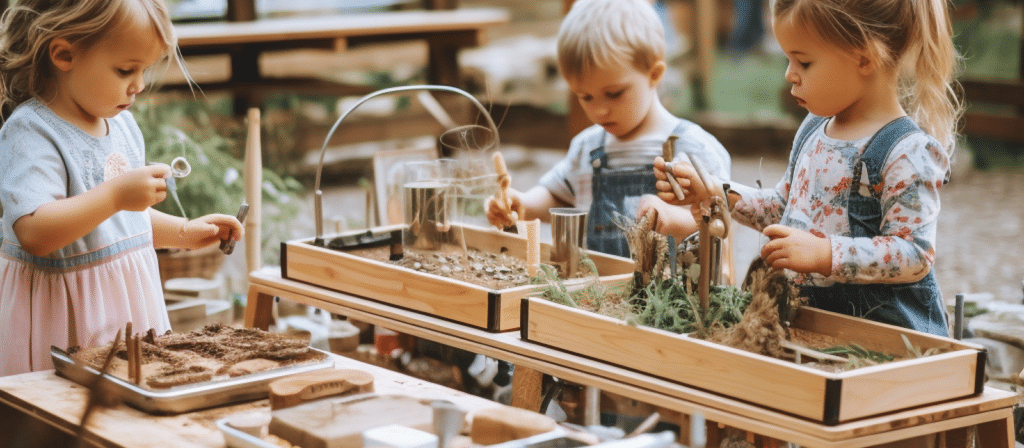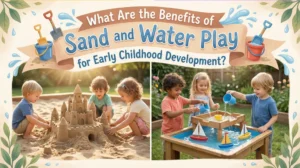The echoes of children’s laughter and exploration resonate through the air, embodying the essence of both work and play. Collaboration, creativity, imagination, inventive thinking, problem-solving prowess, coordination, and physical strength—when children are granted the liberty of outdoor play, their holistic development blossoms.
Even beyond the classroom boundaries, the availability of expansive, natural outdoor spaces remains a cherished yet limited resource, particularly in urban landscapes. The spectrum of what can be considered “natural” varies, ranging from untouched woodlands and vast grasslands to meticulously curated nature reserves and urban parks. Nonetheless, many children are confined to structured outdoor environments such as playgrounds, sports courts, and running tracks, which, though valuable, often lack the fluidity required for unfettered imaginative play.
The Versatility of Pretend Play
Research underscores the pivotal role of play in diverse aspects of children’s growth—ranging from physical vitality to cognitive and linguistic prowess. A study conducted in 2008 revealed that play contributes significantly to physical well-being, surpassing the calorie expenditure of organized physical activities (Mackett & Paskins, 2008).
Emerging studies spotlight the correlation between complex, collaborative, pretend play and emotional regulation as well as innovative problem-solving (Hoffman & Russ, 2012). Profound pretend play enhances children’s ability to embrace different perspectives, subsequently nurturing abstract thinking (Bergen, 2002). In early 2016, a study highlighted that intricate and detailed pretend play demands heightened cognitive processing—an intellectual journey that parallels the expansion of their playtime experiences (Li, Hestenes & Wang, 2016). Correspondingly, the realm of social skills thrives as preschoolers engage in pretend play necessitating intricate interpersonal dynamics such as cooperation, collaboration, sharing, and negotiation, thereby refining their capacity to forge wholesome connections.

Orchestrating the Play Stage
In the same manner that careful consideration is given to the materials offered within the classroom environment—materials that are open-ended, inclusive, and adapted to diverse needs—the same mindfulness should extend to outdoor play spaces and resources. When pondering outdoor play materials, the bounty of nature beckons: pine cones, sticks, leaves, trees, and rocks, in contrast to fixed playground fixtures like slides, monkey bars, and swings. Much akin to open-ended materials indoors—like fabric remnants, blank sheets, and building blocks—these objects boast abundant affordances. Affordance denotes the spectrum of functions a material can fulfill (Fjørtoft, 2001).
For instance, a simple stick possesses expansive affordance, serving as a wand, ladle, or staff in pretend play, and transforming into a baseball bat or obstacle in a game. Within spaces that offer increased material flexibility, such as natural outdoor settings, children gravitate toward intricate pretend play. It’s worth contemplating that play amid verdant, “natural” landscapes diverges, potentially fostering more intricate and developmentally enriching experiences. When natural, outdoor play spaces prove elusive, consider introducing open-ended, natural elements into the existing environment—rocks, seashells, ribbon, leaves, or tote bags. The transformation of their play with these organic or undefined props is truly astonishing.
The Learning Environment’s Third Facet
Following the principles of Reggio Emilia, the learning environment stands as the “third teacher” in early childhood education, complementing the roles of the two human teachers (Edwards, Gandini & Forman, 1998). This encompasses not only indoor classrooms but also the great outdoors. The spaces in which children engage in play wield a profound influence on the quality of their play experiences and their personal growth.
A study delving into a Forest School—a learning institution fully immersed in England’s Mersey Forest—underscored its role in nurturing connections with the natural world, while simultaneously fostering social skills, self-assurance in natural interactions, comprehension, curiosity, motor skills, and leadership abilities (Ridger, Knowles & Sayers, 2012).
Drawing from years of teaching experience in an urban preschool adjacent to Prospect Park in Brooklyn, I witnessed firsthand the social-emotional, physical, and cognitive merits of unstructured play within a natural expanse for the children under my care. The transition to the spacious, natural haven of the park noticeably heightened the complexity and duration of their pretend play, surpassing the playground in multiple facets. Conversations became more intricate, playgroups expanded, scenarios deepened, and continuity prevailed across days. Collaboratively, they constructed elaborate narratives and characters, honing their negotiation and teamwork skills.

Fostering Equitable Nature Engagement
In the urban tapestry of New York City, numerous early childhood centers rely on enclosed yards or nearby constructed playgrounds for outdoor activities, when such opportunities are available. Access to true natural settings, replete with trees, grass, and wildlife, remains an exceptional luxury. In some instances, days or even weeks may pass without the chance for children to relish outdoor moments, let alone within the embrace of nature. Disparities in nature exposure during school hours mirror the broader inequalities that permeate our education system and society at large. Nonetheless, with strategic allocation of resources, every urban child can embrace encounters with nature—be it through forest preserves, expansive parks, or similar locales—investments that will indelibly shape our city’s future and the potential of its youngest citizens.
The Sacred Dance of Pretend Play
Pretend play, an intricate dance of childhood, offers not just entertainment but has been substantiated as a developmental catalyst across diverse domains. Amid the outdoor expanse, a scarce commodity for urban-dwelling youngsters, the benefits burgeon—physically, socially, and emotionally. In a world fraught with uncertainty, educators, caregivers, and parents bear the collective responsibility to safeguard every child’s fundamental right to unfettered outdoor play. Within this vast canvas, potential thrives, and the echoes of their laughter carry promises of a brighter tomorrow.













